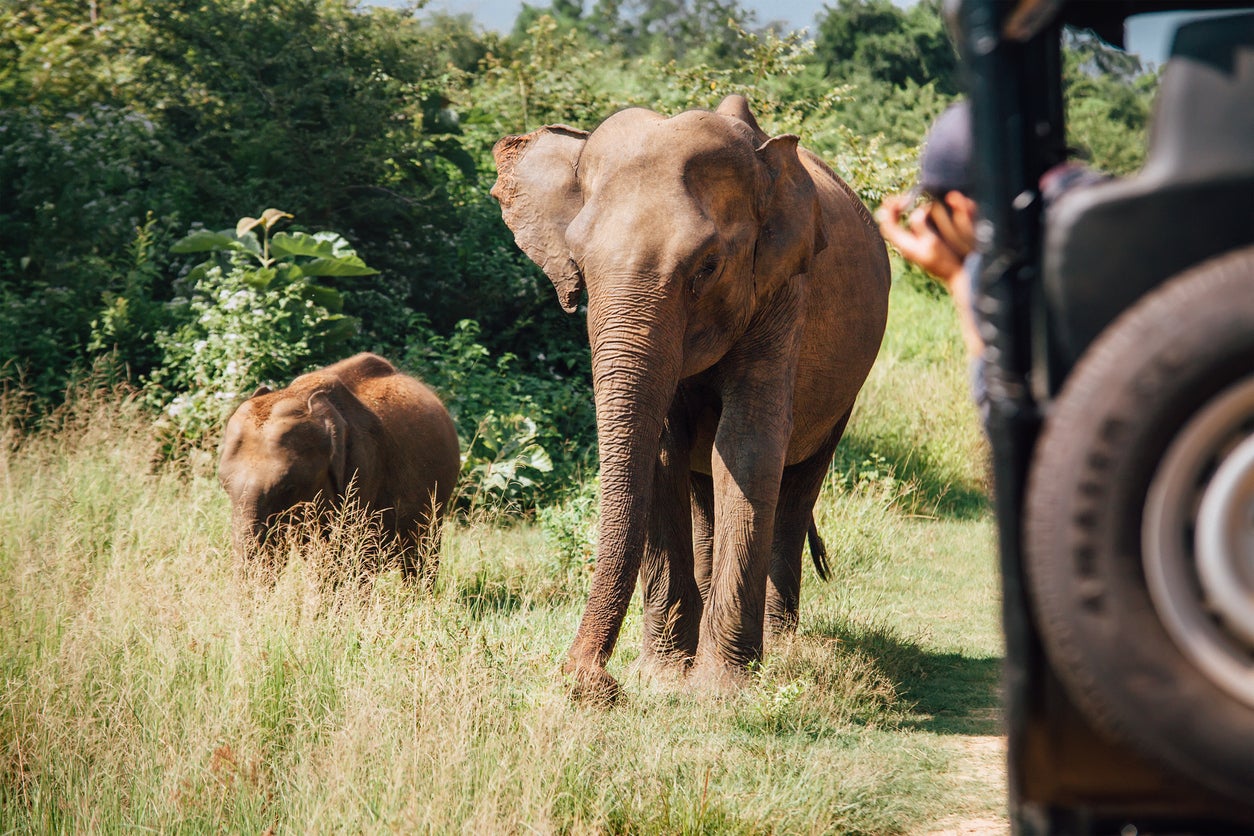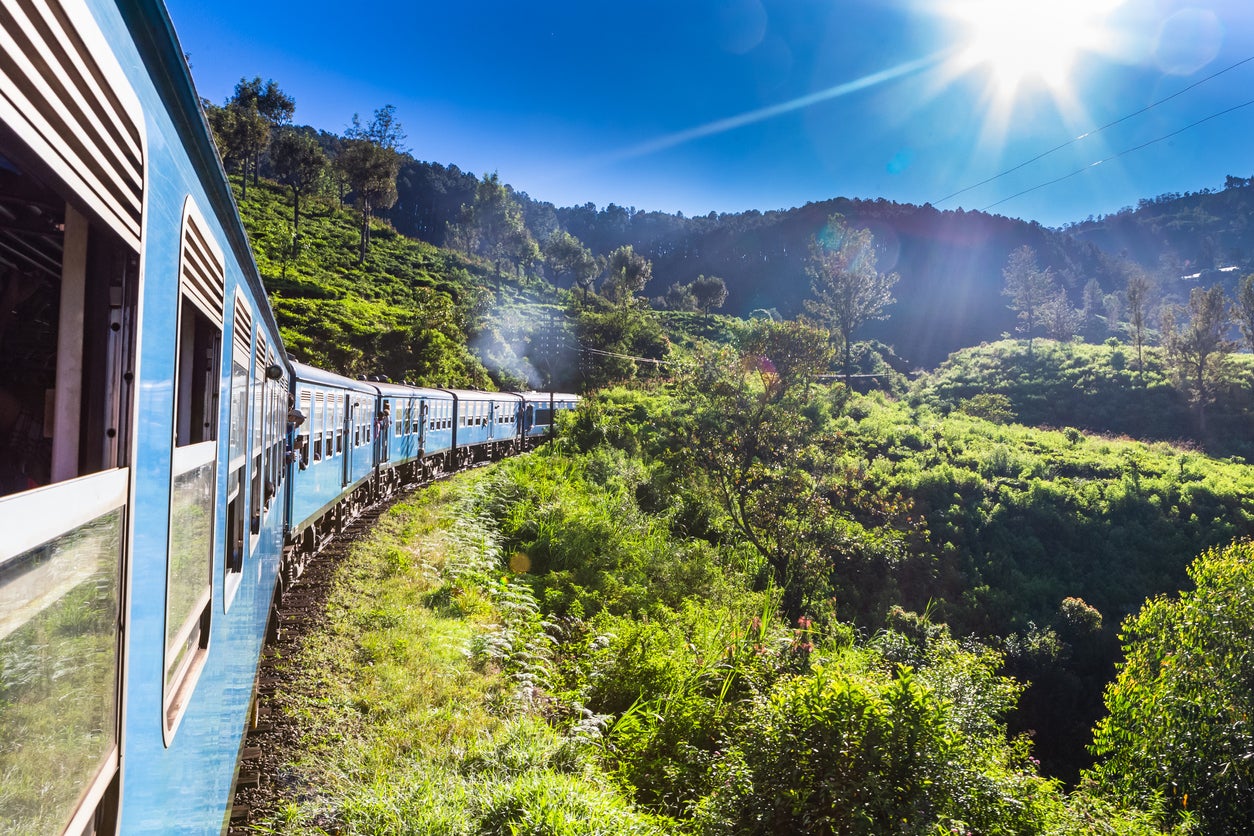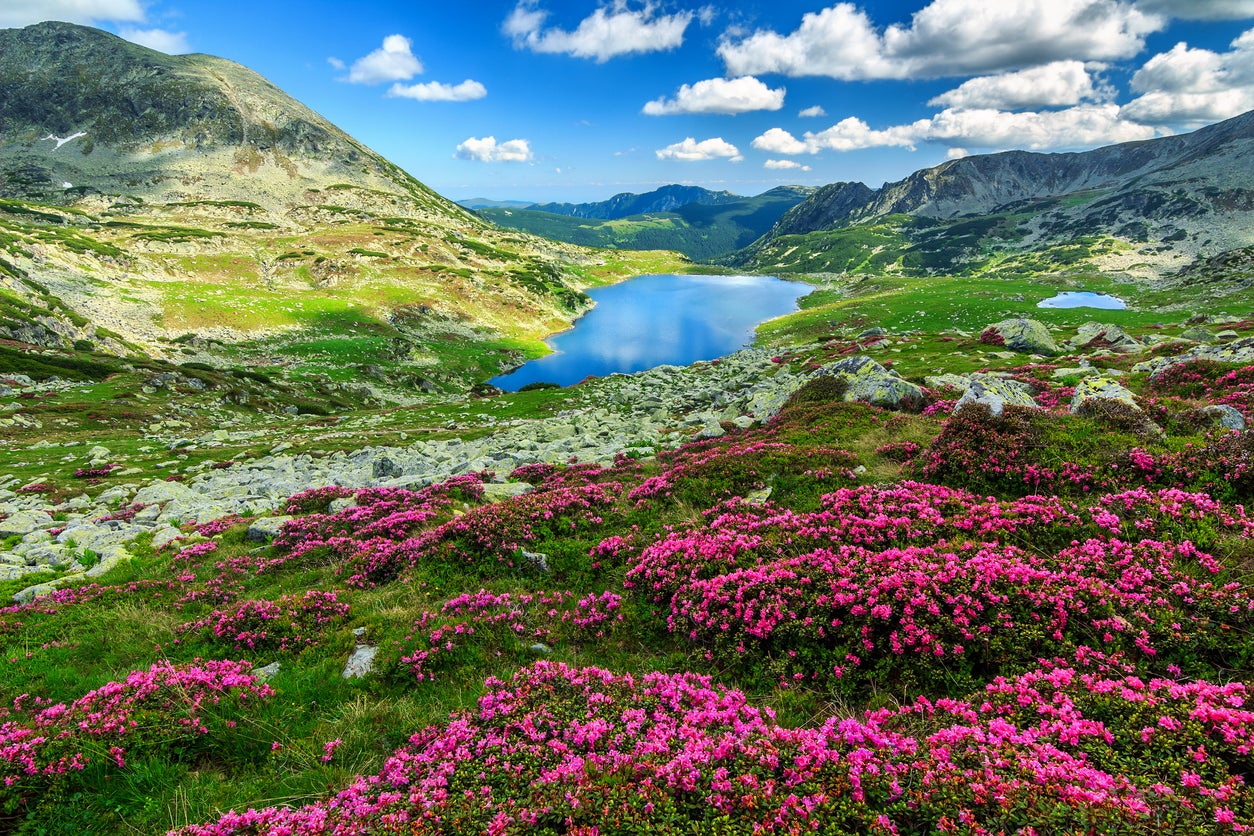Are ‘nature positive’ trips the next step in ethical tourism?
This sustainable approach to travel aims to ensure every aspect of your trip does more good than harm, writes Lucy Thackray


Your support helps us to tell the story
From reproductive rights to climate change to Big Tech, The Independent is on the ground when the story is developing. Whether it's investigating the financials of Elon Musk's pro-Trump PAC or producing our latest documentary, 'The A Word', which shines a light on the American women fighting for reproductive rights, we know how important it is to parse out the facts from the messaging.
At such a critical moment in US history, we need reporters on the ground. Your donation allows us to keep sending journalists to speak to both sides of the story.
The Independent is trusted by Americans across the entire political spectrum. And unlike many other quality news outlets, we choose not to lock Americans out of our reporting and analysis with paywalls. We believe quality journalism should be available to everyone, paid for by those who can afford it.
Your support makes all the difference.“We’re loving nature to death.”
That’s the problem with the state of travel at the moment, says Responsible Travel’s founder and CEO, Justin Francis.
Too many leisure travel tours are putting pressure on the wildlife, he says, on top of the carbon emissions of flights and impact of excursions and stays on local biodiversity.
“In some of Kenya’s game parks, the overcrowding of safari vehicles is disturbing the breeding patterns of the cheetahs, for instance,” says Francis. “Even around the UK’s coast, we have a lot of responsible whale watching, but we have some cowboys whose only goal is to get as close as possible to the cetaceans.”
The ethical tour operator has been offering green and conservation-driven breaks and holidays for two decades, but now - in its 20th year - Francis has decided that doing no harm to our holiday destinations doesn’t quite cut it. We should, he says, be actively making them better.

Enter Responsible Travel’s new goal to make every trip “nature positive” by 2030. Just as being “climate positive” goes a step further than being carbon neutral - not just cancelling out carbon production, but actively removing carbon from the atmosphere - this travel ethos aims to leave the environments we visit not just in the same state that we found them, but better off.
And it’s not just a nod to local conservation projects, with customers contributing a few quid towards a local wildlife sanctuary or spending a day repairing habitats.
Instead, Francis explains, nature positive travel is achieved by ensuring every single step of their customer’s journey has the lightest footprint possible on the planet, and then going beyond that and contributing positively to the destination.
To do this, they’re reassessing everything from how customers reach their destination to ensuring their hotels aren’t damaging or disturbing their natural environments, and serving guests lower impact, locally-sourced food or plant-based meals.
“It’s important to ask questions of your holiday companies and find out what they are doing for nature and biodiversity,” he says.
“Are they really working towards becoming nature positive? Holidaymakers can actively support conservation projects in destinations too, by visiting, showing an interest, paying an entrance fee and coming home and educating others about what they have learnt. Research day trips that contribute to protected areas and help restore habitats.”
For us, it means ensuring our adventures give far more back to nature than they take
To hit its 2030 target, Responsible is actively seeking out accommodation and modes of transport that use renewable energy sources, and encouraging clients to take fewer flights per trip. It’s a multi-pronged approach in which no detail is too small.
Kasia Morgan, Head of Sustainability at adventure tour operator Exodus, also has nature positive travel at the top of her agenda. The company has pledged to become what they are calling nature net positive by 2024.
The key thing about this approach, Morgan says, is first acknowledging that travel does have a negative impact on the planet - and really being unafraid to say that out loud.
“For us, it means ensuring our adventures give far more back to nature than they take,” she says. “We are seeking first to understand the negative impact of our travel, and then to offset that with the three Rs: removing, reducing and restoring.”
Removing might be removing all single-use plastic from its tours and accommodation, or removing excursions which harm biodiversity; reducing involves lowering the company’s carbon footprint and eradicating food waste on trips; and restoring involves supporting rewilding and conservation projects through the company’s foundation, with a goal of rewilding 100 square metres of land per passenger.

Rewilding, a trend in and of itself, is also gaining traction as one key aspect of nature positive travel. Aiming to use the power of tourism to restore human-damaged land and reintroduce native species of both flora and fauna, rewilding programmes have cropped up in areas such as Romania’s Carpathian Mountains and Croatia’s Velebit Mountains (with Rewilding Europe) as well as England and Scotland (Steppes), Portugal (European Safari Company) and Poland (Responsible Travel).
Just under a year ago, Rewilding Europe launched its first Rewilding Training Tourism programme to formally train up guides, hospitality and tourism professionals to incorporate the restorative process into their work.
As well as incorporating rewilding projects into its trips, Exodus is also shifting towards exploring lesser visited nature reserves rather than the most popular ones, and reducing the number of nights their clients spend in over-exploited locations, to combat the effects of overtourism.
For example, their guides might swerve Sri Lankan favourite Yala National Park and explore Udawalawe National Park instead, spreading the country’s tourist spend to help support conservation there; or advise spending just one night in a major, tourist-heavy city before moving on to less well-trodden rural areas.
Life is getting more complicated all over about making ethical decisions - we’re all having to become better informed in order to make better choices
It’s all about drilling down to the tiniest, most granular ways tourism can disrupt or benefit a destination, says Morgan. Close-up issues like avoiding noise or light pollution that disturb local bird life, or having guests collect water samples to help eBioAtlas track global biodiversity, can make tourism less of a burden and more beneficial to the planet.
And being nature positive can’t stop at broad promises of better practice, she emphasises - tour operators must have solid, measurable targets to meet in order to achieve entirely nature positive trips.
“Sectors such as construction and fashion are putting measurable targets around their behaviour,” she says, “aiming to outweigh their negative impact with a positive impact.” Travel companies should be doing the same.
However, it has to be a collective effort, says Justin Francis.
“Life is getting more complicated all over about making ethical decisions - we’re all having to become better educated and informed in order to make better choices,” he says.
“We want to do that on behalf of the tourist. We want to do a lot of that work for you. But at the same time, we need more mindful tourists.”
Morgan agrees. “We need to do more than just conserve the status quo - companies and individuals need to look at how we can proactively support restoration rather than just conserving what is left.”
Join our commenting forum
Join thought-provoking conversations, follow other Independent readers and see their replies
Comments